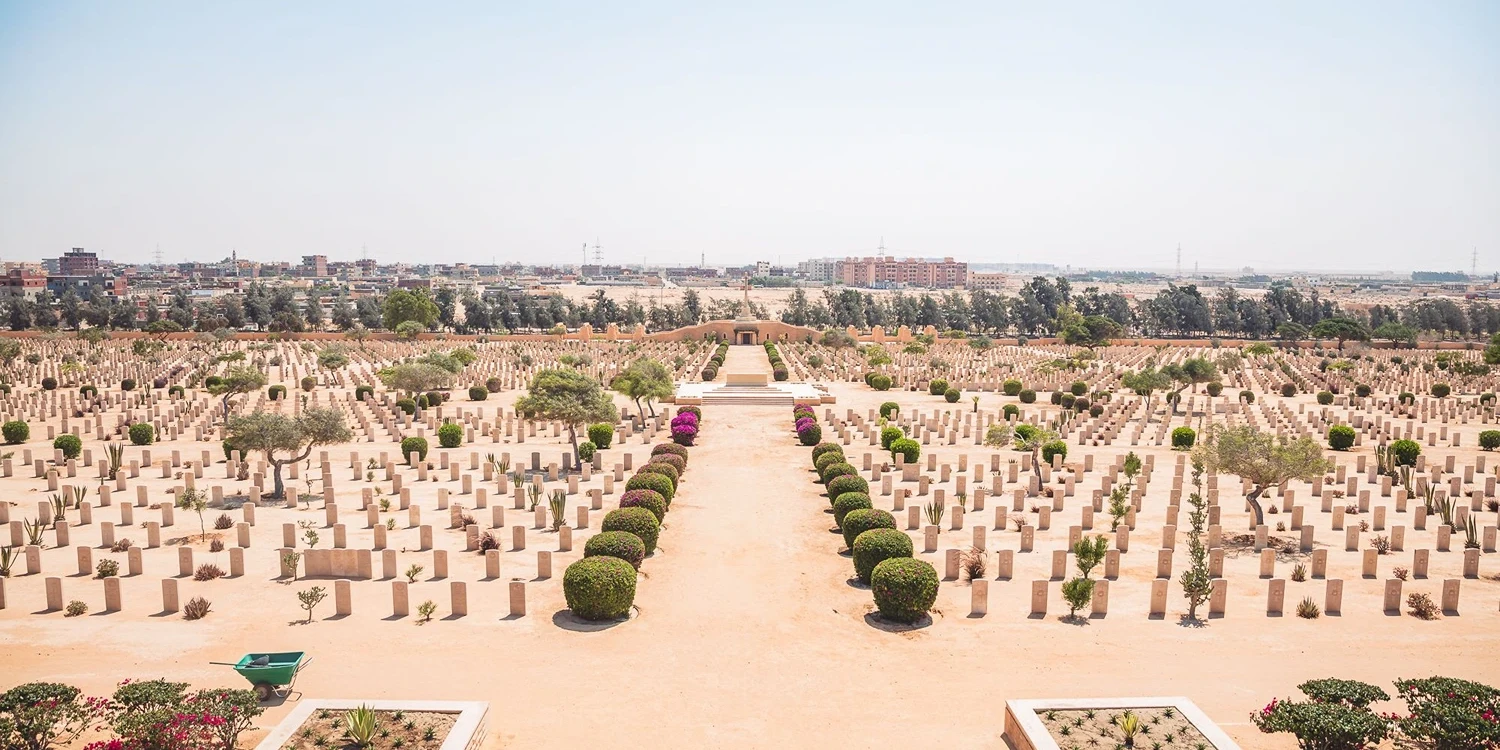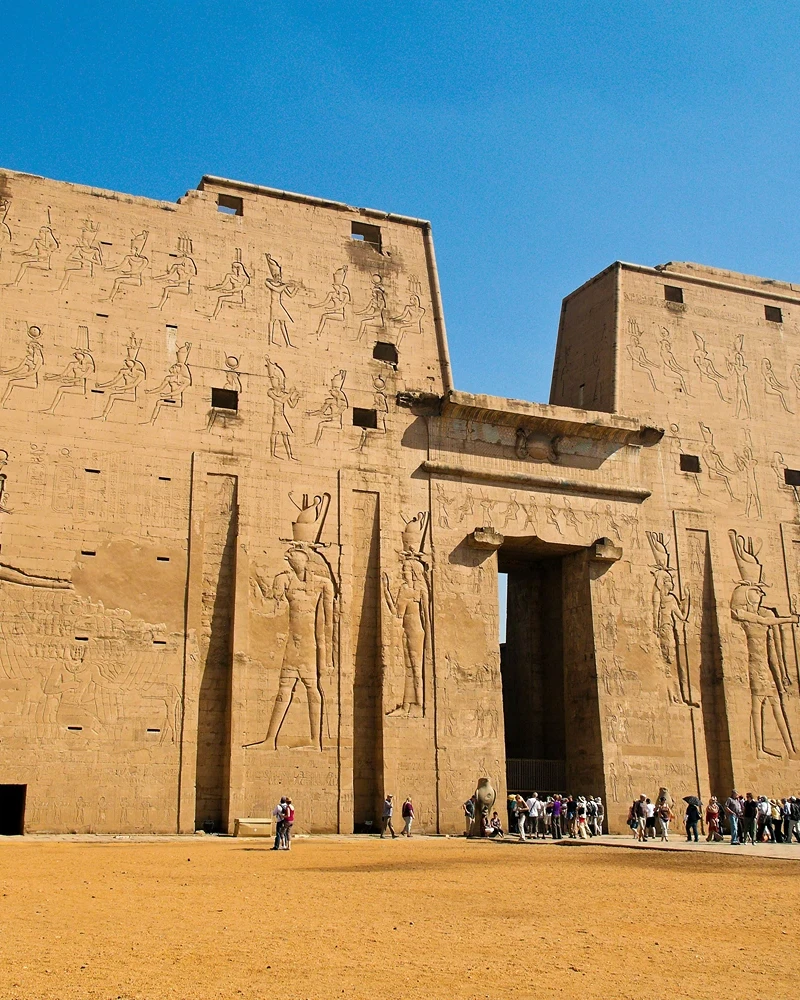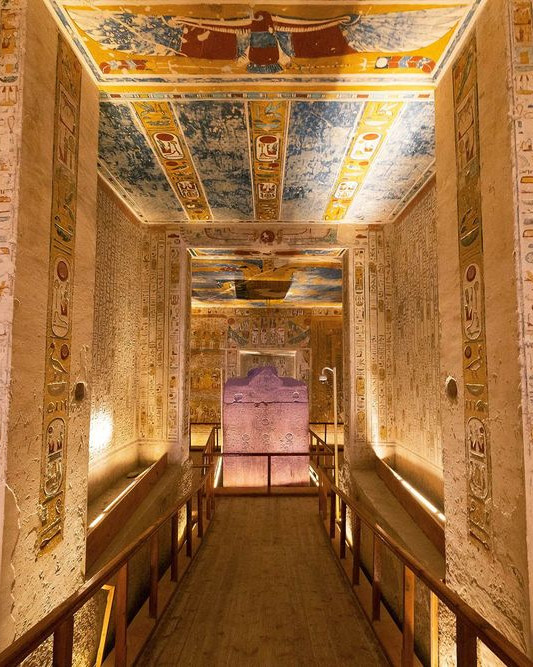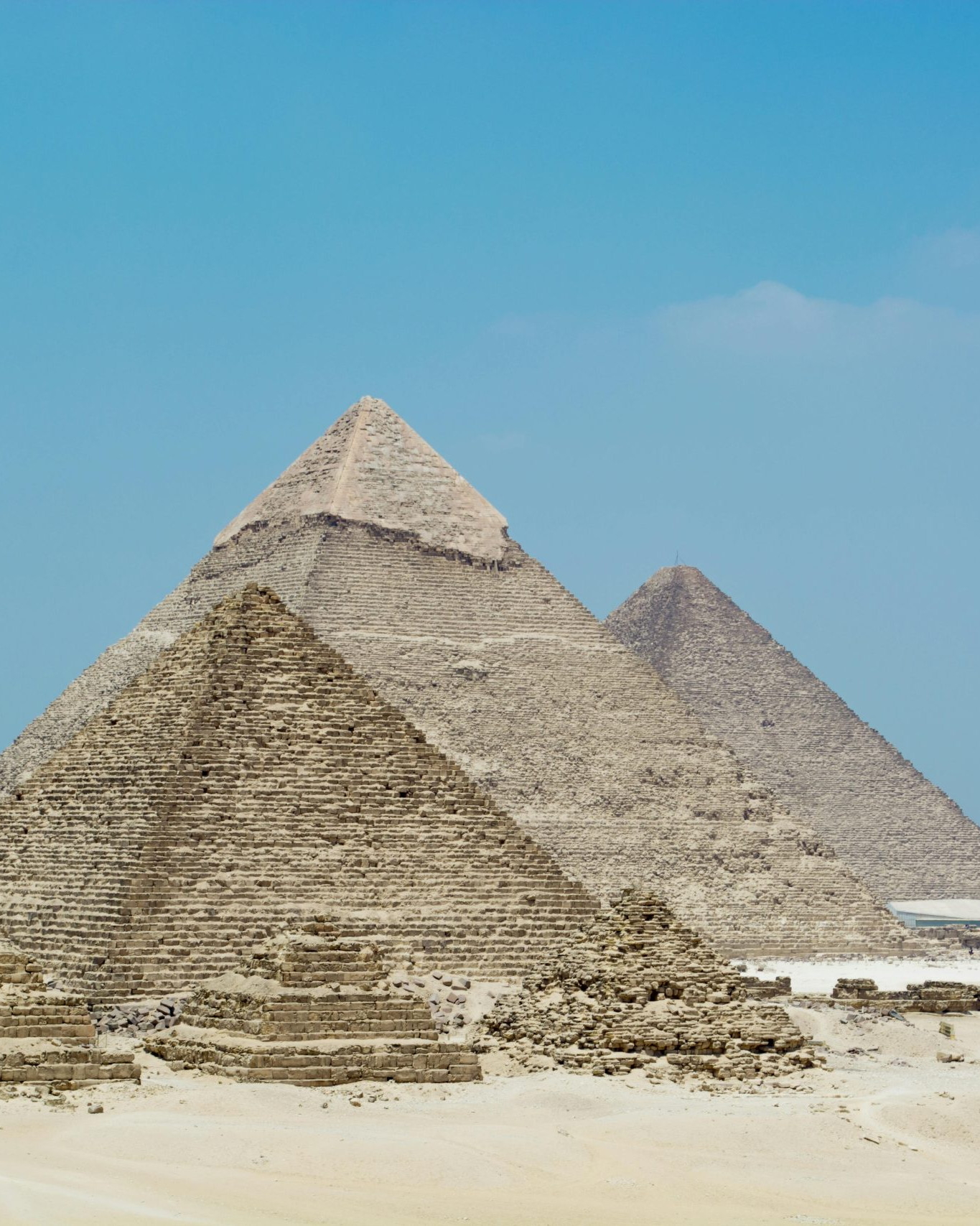How do you honor heroes who shaped the course of history? The El-Alamein War Cemetery stands as a solemn tribute to the over 7,000 soldiers who gave their lives during the pivotal battles of El Alamein in World War II.
Managed meticulously by the Commonwealth War Graves Commission, this site ensures that each soldier’s sacrifice is remembered and respected. In this article, we will delve into the historical significance, notable burials, and essential visitor information of this monumental cemetery, highlighting its profound role in honoring the fallen and educating future generations.
Overview of the El-Alamein War Cemetery
The El-Alamein War Cemetery in Alamein, Egypt, is a pivotal historical site dedicated to the memory of soldiers who fought and died in the battles of El Alamein during World War II. These battles were crucial in the North African campaign, marking a turning point in favor of the Allied forces in 1942. The cemetery stands as a testament to the bravery and sacrifice of the soldiers who participated in these significant conflicts.
Key features of the El-Alamein War Cemetery include:
- Over 7,000 graves of soldiers from various countries.
- Memorials for 11,945 soldiers who have no known grave.
- A diverse representation of nationalities among the fallen.
- Maintained and preserved by the Commonwealth War Graves Commission.
- Informational plaques and visitor amenities for educational purposes.
The El-Alamein War Cemetery serves not only as a final resting place for the fallen but also as an educational site that provides insight into the historical significance of the North African campaign. Managed by the Commonwealth War Graves Commission, the cemetery ensures that the memory of these soldiers is preserved with the utmost respect. Memorial services and commemorative events are held regularly, solidifying its role as both a place of remembrance and a source of historical education.
Historical Significance of the El Alamein Battles
The El-Alamein battles, fought in 1942, were pivotal in the North African campaign during World War II. These clashes marked a turning point in favor of the Allied forces, halting the Axis advance into Egypt and safeguarding the strategically critical Suez Canal. The battles were led by General Bernard Montgomery for the Allies and General Erwin Rommel for the Axis forces. The decisive victory in El Alamein not only protected the Middle Eastern oil fields but also boosted Allied morale and marked the beginning of the end for Axis dominance in North Africa.
| Date | Event | Outcome |
| October 23, 1942 | Start of the Second Battle of El Alamein | Allied forces begin offensive |
| November 2, 1942 | Operation Supercharge | Breakthrough of Axis lines |
| November 4, 1942 | End of the Second Battle of El Alamein | Decisive Allied victory |
The impact of the El Alamein battles on World War II was profound. The victories prevented Axis forces from gaining control of the Suez Canal and Middle Eastern oil supplies, which were crucial for the Allied war effort. Additionally, the success of the Allied forces in North Africa paved the way for subsequent operations in Europe, including the invasion of Italy. The battles demonstrated the effectiveness of coordinated Allied strategies and marked a significant shift in the momentum of the war, contributing to the eventual defeat of Axis powers.
Soldiers Buried in the El-Alamein War Cemetery
The El-Alamein War Cemetery is the final resting place for 7,367 identified Commonwealth servicemen and 102 war graves of other nationalities. Additionally, the cemetery features memorials for 11,945 soldiers who have no known grave. The diversity of soldiers buried here reflects the vast array of nationalities that participated in the North African campaign during World War II. Each headstone stands as a solemn reminder of the individual lives lost and the collective sacrifice made during this pivotal period in history.
Notable burials include:
- Sergeant Herbert Thomas ‘Curly’ Leeson: A 21-year-old Australian who enlisted in the 9th Division and is remembered for his bravery.
- Private John Smith: A British soldier from the Royal Army who played a crucial role in the second battle of El Alamein.
- Corporal Ahmed Mustafa: An Egyptian volunteer who aided Allied forces in reconnaissance missions.
- Lieutenant David O’Connell: An Irish officer known for his leadership during critical desert operations.
- Sergeant Maria Rodriguez: A Spanish nurse who worked tirelessly to save lives on the front lines.
- Private Hans Müller: A German soldier who defected and assisted Allied intelligence.
- Captain Jean-Luc Dubois: A French officer who was instrumental in coordinating multi-national efforts.
The headstones at the El-Alamein War Cemetery tell countless stories of courage and sacrifice. Each grave represents a life cut short, often involving personal tales of loss and heroism. The soldiers honored here came from diverse backgrounds but were united in their commitment to the cause. Their sacrifices serve as a poignant reminder of the human cost of war and the enduring impact of their bravery.
Visitor Information and Guide to the El-Alamein War Cemetery
The El-Alamein War Cemetery is situated near the town of El Alamein, approximately 106 kilometers west of Alexandria and 240 kilometers northwest of Cairo. Its location along the coastal road that connects Alexandria and Marsa Matruh makes it easily accessible by car. Visitors traveling from Cairo can take the Cairo-Alexandria Desert Road and then follow the coastal route to reach the cemetery. Public transportation options are limited, so driving or hiring a taxi is recommended for the most convenient access.
Amenities available at the El-Alamein War Cemetery include:
- Informational plaques detailing the history and significance of the site.
- A visitor center providing additional context and resources.
- Restrooms to accommodate tourists.
- Well-maintained pathways and seating areas for visitors.
- Designated parking spaces for cars and buses.
The cemetery is open to visitors daily from 8:00 AM to 5:00 PM, allowing ample time to explore the grounds and absorb the historical significance of the site. There is no entrance fee, making it accessible to everyone who wishes to pay their respects. For the best experience, it is recommended to visit early in the morning or late in the afternoon to avoid the midday heat. Wearing comfortable shoes is advisable, as the cemetery grounds are extensive. Additionally, carrying water and sun protection will enhance the visit, especially during the hotter months.
Educational and Commemorative Role of the Cemetery
The El-Alamein War Cemetery serves as both a place of remembrance and an educational site, providing valuable insights into the history and impact of the North African campaign during World War II. By visiting the cemetery, individuals can learn about the significant battles that took place in El-Alamein and the broader context of the war. Informational plaques and the visitor center offer detailed explanations, shedding light on the strategic importance of the North African campaign and the sacrifices made by soldiers from various nationalities.
Regular memorial services and events held at the cemetery include:
- Annual Remembrance Day ceremonies.
- Commemorative services on the anniversary of the battles of El Alamein.
- Special tributes on national holidays of the countries represented by the fallen soldiers.
- Educational tours and school visits.
- Veteran reunions and family remembrance gatherings.
The cemetery is meticulously maintained by the Commonwealth War Graves Commission, ensuring it remains a place of respect and remembrance. The Commission’s ongoing efforts include landscaping, cleaning, and restoration work to preserve the site’s dignity and historical integrity. These maintenance activities are crucial for honoring the memory of the soldiers and providing a serene environment for reflection and education.
Final Words
The El-Alamein War Cemetery is a significant historical site that honors soldiers from various nations who fought in the pivotal battles of El Alamein during World War II.
From its role in commemorating over 7,000 soldiers to its educational importance, the cemetery offers a profound connection to the past.
Understanding the impact of the El Alamein battles and visiting the cemetery provides a deeper appreciation of the sacrifices made.
Managed diligently by the Commonwealth War Graves Commission, the site continues to serve as a respectful tribute and an informative resource.
Visiting the El-Alamein War Cemetery allows for reflection and remembrance, keeping the memories and lessons of history alive.
Top Attractions
Why would an ancient civilization dedicate 180 years to…
Why did the ancient Egyptians choose a secluded desert…
Are the Great Pyramids of Giza merely monumental tombs, or…





